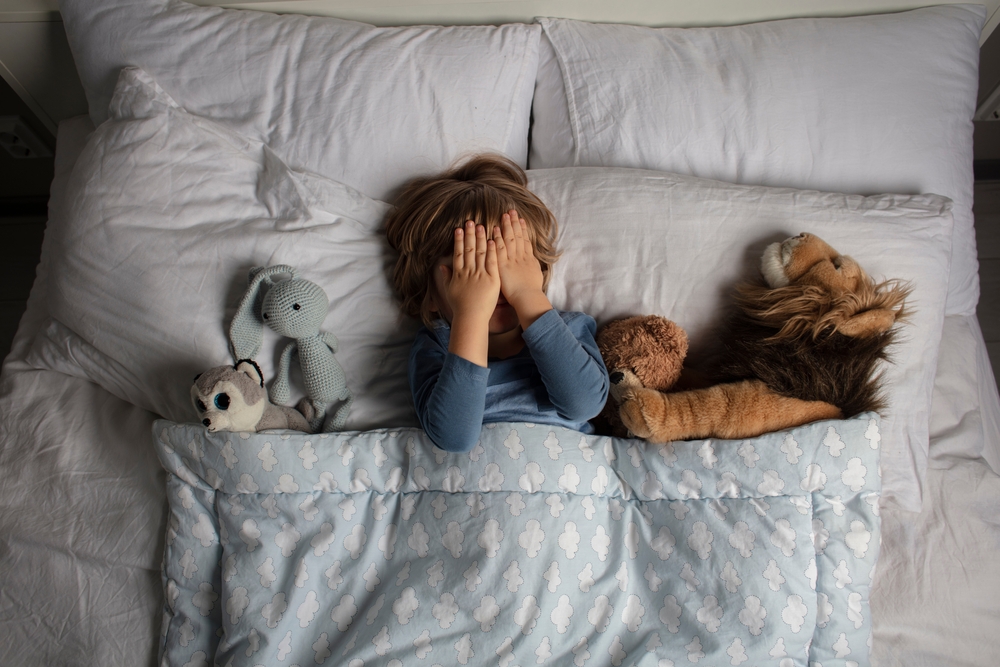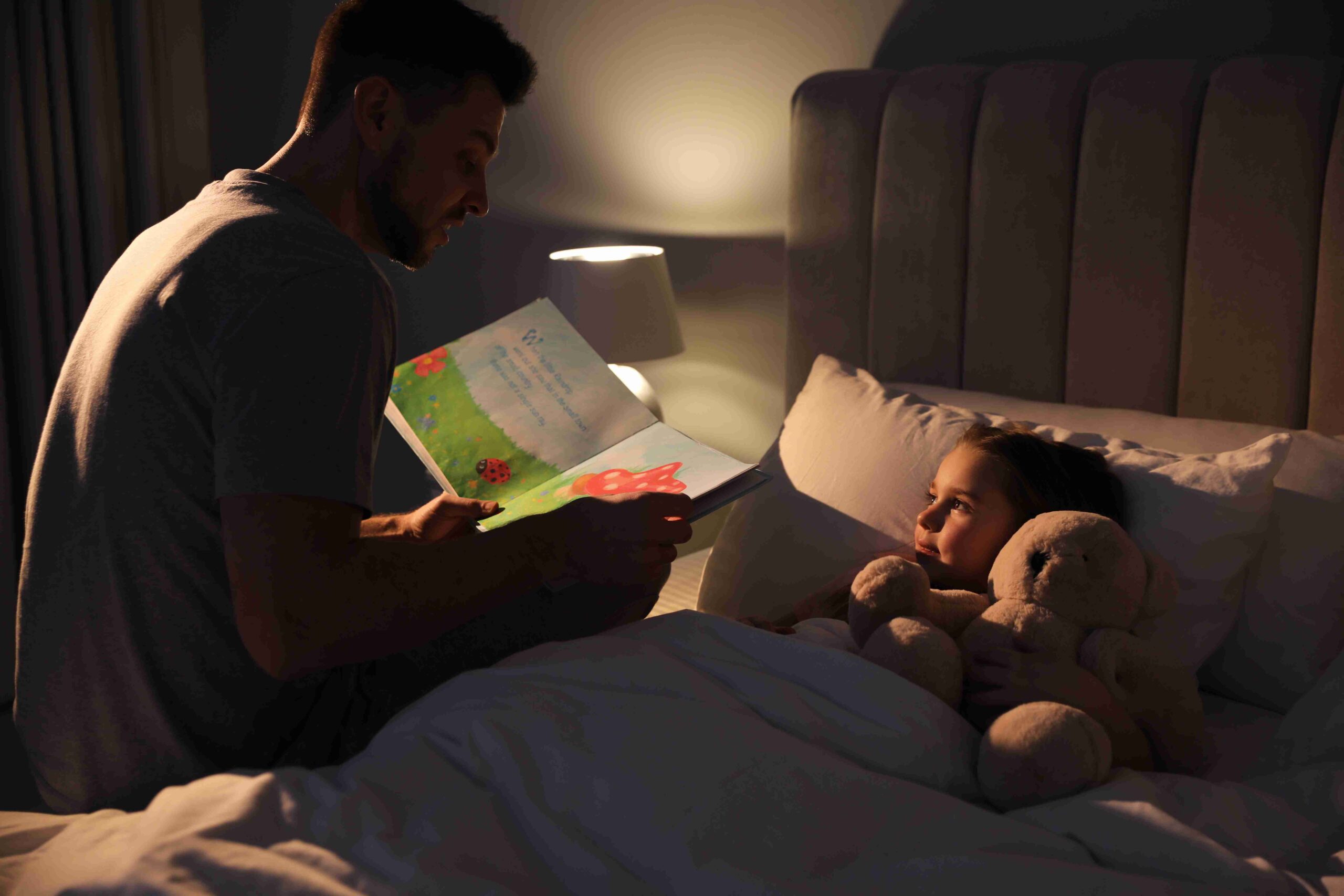When your little one wakes up crying, it’s easy to assume that they’ve had a nightmare. But do infants have nightmares? Whether or not infants have bad dreams, your baby’s sleep is crucial. Sleep plays a big part in your child’s overall health, and the development of their brain. While your baby is asleep, their brain is forming the foundations of their cognitive function and mental health.
If your infant’s sleep is being disrupted, you can help them by understanding how their sleep cycle functions, what to do when they wake up and how to support them in having a good night’s rest
Do Infant Nightmares Actually Happen?
The answer is a bit of a mystery. Infants range from newborn babies to just under 18 months old, which makes them too young to share what they experience during sleep. And while infants can seem like they’ve had bad dreams, child sleep experts like Dr Lisa Meltzer suggest that’s unlikely. At the same time, neuroscientists theorise that infants don’t experience nightmares because their brains haven’t fully developed the functions required for dreaming.
As your baby grows, their dreams grow alongside them and they’ll eventually be able to share what they experience during sleep. According to child psychologist David Foulkes, children’s dreams evolve as their brain develops and nightmares in children typically begin at around two years old.
While there’s no solid evidence to determine whether infants actually experience nightmares, Meltzer thinks it’s more likely that your baby’s sleep is being disrupted for a variety of other reasons. These range from physical discomfort like hunger or a dirty diaper, to sleep disorders like night terrors.
Understanding Infant Sleep Cycles
Infants spend about 12 to 16 hours asleep on average, including nap times. Just like adults, infants go through two phases of sleep. Non-rapid eye movement (non-REM) sleep, which is a lighter sleep where their body restores itself, and rapid eye movement (REM) sleep—where their brain develops and dreams eventually form. Once you notice signs and symptoms disrupting their much needed rest, like awakening and crying at night or refusing to sleep without you nearby, it’s time to figure out what’s causing your little one to wake up.
Common Causes of Infant Sleep Disruption
- Overtiredness
When your baby is too exhausted they might have more trouble staying asleep. Sticking to a consistent bedtime routine and managing their energy throughout the day can help reduce this from happening.
- Hunger
If your baby feels hungry in the middle of the night, they might cry out for your attention. Try to feed your baby about half an hour before their bedtime, and consider feeding them again two or three hours before you go to bed so they can feel full throughout the night.
- Discomfort
A dirty diaper, hot or cold temperatures and toys in their crib might cause a baby to feel uncomfortable. Try adjusting these factors to help your infant have a cosy sleep.
- Night terrors
Often confused with nightmares, night terrors are a sleep disorder that happen during stages of non-REM sleep. This is unlike nightmares and dreams, which only occur during REM sleep in adults and older children. Although night terrors are rare, if it does happen, and your baby suddenly cries out while deep asleep, it can be very alarming.
When your baby is experiencing a night terror, they might seem like they’re awake as they cry and struggle. However, they are actually still deeply asleep. While this might seem frightening, infant night terrors aren’t usually a big concern. If your baby experiences a night terror, remain calm and simply observe your baby until it passes. Don’t try to wake your baby unless they flip over or otherwise endanger themselves. If they wake up, they might be startled and it’s usually quite difficult to get them back asleep again.

When to see a doctor
Typically, sleep disturbances aren’t a cause for concern, unless they happen repeatedly over a longer period of time. Yet there are some exceptions which require medical attention as soon as possible:
- Illness: Baby sleep problems can occur if your little one is feeling unwell. If this is a new, recurring development, it’s possible that your baby has an illness.
- Snoring: Another sign to watch is snoring, which might be a symptom of an underlying health condition like sleep apnea.
- Seizure: Be sure you can identify the difference between a night terror and a seizure. Usually, seizures can be identified when an infant appears to wake up and perform the same repetitive, automatic motions again and again while actually deep in non-REM sleep. These kinds of movements aren’t common in night terrors. Regardless, if you’re in doubt, it’s best to book an appointment.
6 Ways to Reduce Infant Sleep Problems
There are a variety of ways to help your little one get the rest they need. Here’s what you can do:
- Recognize when your infant is ready for bed
Rubbing eyes, cranky or fussy behaviour—these are all signs that it’s time for sleep. - Try to put them to bed before they fall asleep
When you tuck your baby into bed before they’re asleep, you’ll be helping them learn how to sleep on their own. - Take advantage of the waking hours
A fulfilling day usually leads to better sleep at night. Just make sure your baby’s not overly tired, as this can cause them to have trouble staying asleep. - Establish a bedtime and naptime routine
Whether it’s a bath, picture books, playing soft music or rocking in your arms, a consistent bedtime routine can go a long way in helping your baby prepare for sleep. - Be consistent with the routine
The more consistent the bedtime or nap time is, the easier it is for your baby to mentally prepare for sleep.
- Find the right daycare
Whether you’re managing a household or working a full-time job—or both—finding time to keep your little one occupied all day so they can rest well at night can be tricky. That’s when you might want to contact a daycare dedicated to your infant’s health and development. Look for an infant program that offers sleep rooms for your baby to get the rest they need, while being carefully monitored by professional childhood educators.
A Restful Sleep for You and Your Child
While it’s unlikely that infant nightmares happen, there are many other sleep disturbances that can cause your baby to wake up at night. To help them get the rest they need for their growth and development, try establishing a consistent bedtime routine and engaging activities throughout the day. And once your baby starts sleeping through the night more peacefully, that means a more restful sleep for you, too.
Contact us today
Childventures Early Learning Academy provides a dedicated sleeping space so children can rest undisturbed, ensuring your baby has the energy to learn and grow. Visit our website or contact us for more information.



